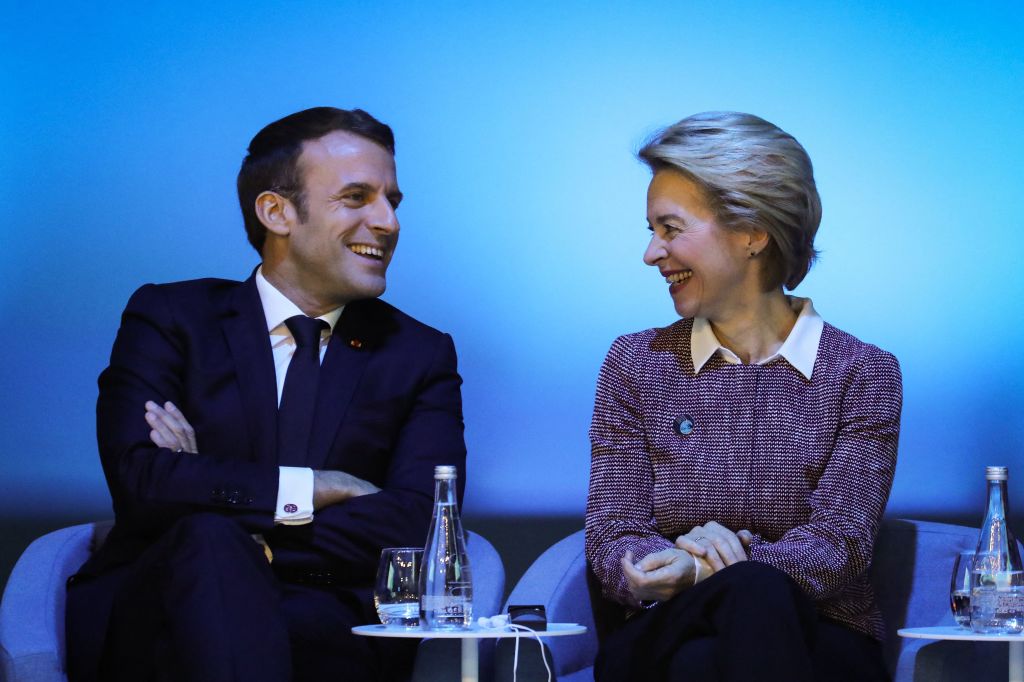This very insightful tweet by the author of the article ties the whole picture together of what is happening in Europe at the moment:
"The sudden panic over France’s deficit is a crystal clear example of how the euro is used to subvert democracy. Elect the wrong government (or even just consider doing so) — and the supposedly “apolitical” and “independent” ECB won’t think twice about resorting to monetary blackmail and engineering a financial/fiscal crisis in order to bring the government, or the voters, back in line.
As I write in my latest article, as soon as Macron called a snap election in response to Le Pen’s crushing victory last week, the “spread” between French and German government borrowing costs immediately rose to the highest level in years. Now, this could be seen as a “natural” reaction of financial markets to the prospect of a “populist” majority coming to power in France — and this is certainly how much of the media is framing it. But this ignores the fact that, ultimately, the spread is determined by the central bank — in the EU’s case, the ECB — which always has the power to bring down interest rates by intervening in sovereign bond markets. Markets only have power over states insofar as the central bank refuses to act.
Regrettably, the ECB has a long history of selectively refusing to intervene in support of sovereign bond markets, and engineering financial and fiscal panics. It did this, for example, with Italy’s Giorgia Meloni — allowing interest rates to rise as soon as her government came to power, until she pledged to submit to the EU’s economic agenda. It would now appear to be pre-emptively applying the same strategy against Le Pen in France.
This does, of course, run contrary to what should be the ECB’s principal job: keeping the spread down, or at least mitigating its rise, and thus allowing the democratic process in France to proceed as smoothly as possible. But unfortunately, the ECB isn’t a normal central bank; it’s a full-blooded political actor that has no qualms with coercing governments to comply with the overall political-economic agenda of the EU. It seems inevitable, for instance, that if Le Pen were to win the next election, the central bank’s pressure on France would only increase: expect hysterical takes on France’s ballooning fiscal deficit, despite the fact that France has had a higher-than-average deficit for years, though this was never a problem so long as pro-EU governments were in power.
Ultimately, this is a reminder that the euro is incompatible with any notion of democracy or popular sovereignty. A system where where democratically unaccountable institutions, such as the European Commission and ECB, are able to arbitrarily decide the policies of elected governments — or even forcibly remove them from office — cannot qualify as democratic.
As the British economist Wynne Godley famously wrote, “the power to issue [one’s] own money, to make drafts on [one’s] own central bank, is the main thing which defines national independence. If a country gives up or loses this power, it acquires the status of a local authority or colony”.
In fact, I would argue that we are in the presence of an extreme form of capitalist authoritarianism that is structurally post-democratic to its very core. Furthermore, this was not an unintended consequence of the “mistakes” committed along the road — in good faith, it is often claimed — by the architects of the euro; on the contrary, constraining national democracies was one of the euro’s principal aims all along .
For this reason, any belief that the EU can be “democratised” and reformed in a progressive direction is a pious illusion. A system that was created with the specific aim of constraining democracy cannot be democratised. It can only be rejected."

The sight of a pre-selected candidate being handed the reins of power over a lavish meal is the very epitome of democracy at work.
European values tho.
And if that wasn't bad enough, it appears that EU institutions are now already pre-emptively applying pressure on national governments to prevent any deviation from the Brussels line from happening as a result of the recent EU elections.
This tweet by the author of the article does a great job of explaining how that happens through ECB monetary policies. I was so impressed by the quality of the analysis (even if some of it is also in the main article) i added it to the body of the post.
The irony is quite rich when one considers how European perceptions of the Chinese government mirror their own, seemingly oblivious to the fact it's the EU that has an opaque and corrupt unelected regime that defies accountability to its citizens.